|
Beginning July 1, the major U.S. tobacco companies were mandated to post eye-catching signs telling the public the truth about the deadly consequences of cigarette smoking at about 220,000 retail stores across the nation that sell cigarettes. “This is a long-overdue step in holding the tobacco industry accountable for decades of misleading the public with blatant lies that led to addiction, disease and premature death for millions of people,” said Jonathan Chaffee, Reality Check youth coordinator for Tobacco-Free Chautauqua, Cattaraugus and Allegany Counties (TF-CCA). Under a federal court order, said Chaffee, the signs must be installed near cigarette displays in stores by September 30 and must be displayed until June 30, 2025. This order will fully implement the “corrective statements” the tobacco companies were first ordered to make in 2006, when U.S. District Judge Gladys Kessler issued a landmark judgment that these companies had violated civil racketeering laws and lied to the public for decades about the health risks and addictiveness of cigarettes and their marketing to children. The tobacco industry has fought the point-of-sale corrective statements in court for 16 years, but the parties to the case – including the U.S. Department of Justice, six public health organizations and the tobacco companies – negotiated an agreement for the corrective statement signs to be displayed in retail stores for 21 months. The point-of-sale signs will tell the public the truth about the adverse health effects of smoking and secondhand smoke, the addictiveness of smoking and nicotine, and the industry’s manipulation of cigarettes to make them more addictive. Most important, this important information will be provided to consumers at the point where they are making decisions whether to purchase cigarettes. The corrective statements have previously been disseminated through newspaper and television ads and on cigarette packs, and they continue to appear on tobacco company websites. The statements are intended to prevent and restrain future fraud by an industry that has lied to the American people for decades. For information on the corrective statements visit https://countertobacco.org/retailers-required-to-post-tobacco-industry-corrective-statements-at-the-point-of-sale/ . Jonathan Chaffee Tobacco-Free CCA Reality Check Coordinator Keep Kids Safe – Lock Up Your Marijuana
Here’s a few tips on how to keep your kids safe from Marijuana: #1: Locking Up Your Weed Can Help Keep Your Kids Safe While marijuana may be okay for adults, studies have shown that it may be detrimental to a teen's brain development. Additionally, it can pose a safety risk to very young children. If you keep marijuana in the house, medication storage best practice is to make sure it's stored safe and secure in order to help protect your kids from experimentation, or worse. #2: Help Prevent Accidental Poisoning Just like storing your prescriptions safely, locking up your weed helps prevent accidental poisoning. Marijuana poisoning is a serious problem, especially for young children. According to the National Capital Poison Center, young children have been seriously poisoned by swallowing marijuana. Cookie, cakes, and candies containing marijuana are especially tempting. #3: Protect Yourself from Theft Locking storage doesn't just keep your kids, teens, and pets safe... it helps keep you safe too! Unsecured marijuana can be tempting, and not just to unknown thieves or criminals. You may not even realize how many people have regular access to your home and may know where you keep your marijuana. It's just as important to lock up your marijuana as it is your other medications. By: Liz Threehouse 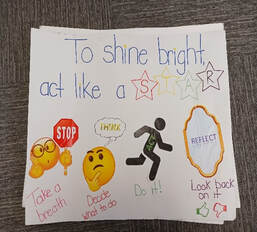 What would have been a memorable day for middle and elementary school students to watch a game of summer baseball, Thursday June 8th turned into a smoke filled “all activities are cancelled” day. When the Oilers kids’ day was cancelled due to poor air quality, it was a melancholy feeling not being able to witness the excitement on students’ faces being able to watch a competitive game of baseball packed with fun games and endless entertainment. But, with the quick action of the Olean Oilers organization, CASA-Trinity prevention, and Olean City School District staff, plan B was in the works. On Wednesday, June 14th, the Oilers had orchestrated a surprise visit for Olean City School District’s fourth graders; a surprise that they will never forget. During their regularly scheduled classes, some of the Olean Oilers players decided to “sit in” on some classes and say hello to students! Each player in attendance talked a bit about themselves: where they go to college, what their position is, and gave a warm thank you to the fourth-grade classes that made posters related to substance use and alcohol prevention. When the Oilers kids’ day was originally set in stone, Olean City fourth-grade classes created posters to showcase the concept of STAR: Stop. Think. Act. Reflect. Before making any decision, students are encouraged to stop, think, act, and reflect to ensure good decision-making skills. However, when the Oilers kids’ day was smoked out, CASA-Trinity prevention was unable to showcase these beautifully created posters within the walls of Bradner Stadium When it came time for the surprise visit, CASA-Trinity’s Prevention staff also surprised students with swag bags sponsored by Healthy Cattaraugus County Coalition (HCC), thanking them for their hard work in creating their STAR posters; each bag had a simple message: Make Today Epic. At the conclusion of CASA-Trinity’s collaborative visit with the Olean Oilers players, the fourth-grade students were elated to have this surprise visit and were over the moon to still have an experience to interact with the players in some capacity, despite not having an actual kids’ day as they anticipated. Students were encouraged by the players to come out and attend a game with their families this summer as their #1fans. Students were also encouraged by CASA-Trinity’s prevention staff to be STARS this summer, and to always stop, think, act, and reflect before making decisions. Go Oilers!! Did you know that the average recommended serving of coffee is only 6oz? Or that he generally accepted level of daily caffeine intake for a healthy adult is about 200mg per day? That might sound ridiculous in the world today, but it is true. Think back to waiting rooms and those little Styrofoam or paper cups. That is what a single serving of coffee should look like. That 6oz cup of basic Folgers or Maxwell House packs in 68mg of caffeine which should be enough energy for approximately 5 hours. But…when was the last time that we saw 6oz coffees for sale? The reality is…we haven’t in a very long time. Which means that we are consuming more caffeine than ever and putting our health at risk.
Here comes the bad news for all of the Starbucks lovers reading this. Starbucks offers the “short” (8oz), “tall” (12oz), “grande” (16oz) and the “vente” (20oz.). That may not sound too far from the 6 ounces, especially on those days where you just do not have the energy to get motivated. Did you know that 8oz of Starbucks coffee has nearly three times the amount of caffeine than that 6oz cup in the waiting room?? That’s right. That “short” from Starbucks packs a whopping 180mg of caffeine! A “vente” contains over 400mg. A 10oz brewed coffee at Dunkin is about 150mg. (At the end of this blog, you can find a chart showing the caffeine in coffees, teas, pops, waters and more. Test your caffeine knowledge!) Let’s be honest though. Coffee is not the only source of caffeine now. We have energy drinks, pre workout powders and drinks and diet supplements. Beyond Raw has become one of the industry leaders in pre workout powders and drinks. Yet, a single serving of these products can set you back between 250 and 300mg of caffeine. So, if you start your morning with coffee and then hit the gym, you might be overdoing it. Besides… I cannot stress this enough…Caffeine has NO NUTRITIONAL VALUE!! What it does have is side effects. Kids and Caffeine Again…caffeine has no nutritional value! Your growing child does not “need” caffeine. They may need more sleep or a more balanced diet. But…they do not need caffeine. We get it. Homework takes forever and your child just wants more energy. Caffeine is not the way to go. I know that caffeine is also fairly difficult to avoid. Some restaurants only offer pop and they tend to be cheaper than bottled water. Add in the unlimited refills and it saves money. If your child is going to consume caffeine, please keep this in mind. According to experts, no one under the age of 17 should consume energy drinks. For kids and teens (ages 13-18), caffeine intake should be capped at 100mg per day. A 20oz bottle of Mountain Dew is approximately 90mg of caffeine. Even coffee-flavored ice creams contain caffeine. Some over-the-counter medications like Excedrin, Goodys and Tylenol can contain caffeine. All of this can have an impact on your child’s health and development. But…How?? With the rise in popularity and the diversity of offerings, this is a valid question. They say “America Runs On Dunkin” but I think the more accurate slogan is that “Americans Run On Caffeine.” I also think that we have forgotten that caffeine is not harmless. According to Columbia University, growing kids do better with consistent sleep patterns, scheduled meals, frequent social interaction, and opportunities to learn and demonstrate new skills. Schools and after-school activities help to support this growth so that kids can thrive and meet their milestones. When kids consume caffeine, it not only interferes with this development, but it can increase the risk of (or exacerbate pre-existing conditions) like high blood pressure, kidney disease and anxiety. Caffeine can interfere with healthy sleep patterns. It can be keeping your child up longer at night and making it more difficult for them to wake up. It can make them drowsier during the day, which can lead to “needing” a caffeine boost. Secondly, kids are smaller than we are, which means that caffeine can have a much bigger impact on them. Short Term Side Effects of Caffeine (can include but are not limited to):
Long Term Side Effects of Caffeine (can include but are not limited to):
What Can I Do? Ideally, if your child is going to consume caffeine, limit their intake to the daily recommended amount. Reconsider that sale at Tops that sends you out the door with 6 cases of pop. Keep an eye on how much caffeine your child consumes away from home. Your dentist will also thank you because caffeine is usually packed into sweet and sugary drinks! RESOURCES: https://casa-trinity.org/ https://www.cuimc.columbia.edu/news/caffeine-and-kids#:~:text=Consuming%20caffeine%20not%20only%20interferes,chronic%20kidney%20disease%2C%20or%20anxiety CAFFEINE CHART: https://www.cspinet.org/caffeine-chart I was chatting with someone the other day about how early childhood trauma affects the brain, and they couldn’t comprehend how the brain wouldn’t remember things but the body would. He couldn’t plug it into his understanding that rebellious or disobedient behavior could actually be a manifestation of childhood trauma. A child couldn’t possibly be cognitively be aware of that choice between selfishness “I want it” mentality vs. “I can’t help it” behavior. So how would one be able to discern whether a child’s behavior is simply a matter of exerting control over their lives, or that their behavior is a protection mechanism that their body has learned from trauma? Which is it? Is there something wrong with you or is this about something that happened TO you? For parents, teachers, caseworkers, business owners and everyone else, this is certainly a hot topic, and no doubt a daily dilemma, when it comes to understanding child abuse in all of its evil forms. I want to encourage you that even in our busy schedules, it is imperative that we give our hearts, minds and souls to the work of understanding trauma and how childhood abuse exacerbates behaviors in the adolescent and young adult years. We owe it to future generations to help them build resilience by preventing childhood abuse. Remember it's only information plus application that yields transformation! As you learn more, you’ll know more and see more!
Alan Meyers Safe Harbor Coordinator Connecting Communities in Action Today, I want to talk about what unhealthy relationships look like. Maybe you are a parent or caregiver who is concerned that something about your child’s relationship is a little “off.” Hopefully, by the end of this blog, you will have a better insight into what I mean by teen dating violence, the many forms that it can take on, and how to help yourself, a friend or your children. Relationship abuse is defined as “a pattern of unhealthy behaviors towards a current or former intimate partner in order to gain or maintain power and control. Usually, the behaviors start off subtly and get worse over time. Common factors of relationship abuse are intimidation, fear, and manipulation. Anyone can experience abuse regardless of gender, race, sexual orientation, class, or religion.” Teen dating violence can manifest in physical, emotional, sexual, and digital forms. To be clear: abuse is not always physical. How Common Is Teen Dating Violence?
Digital Dating Violence One of the most common forms of teen dating violence is digital abuse and digital violence. This involves the use of phones, tablets, computers, laptops, tracking devices, cameras, etc. in a way to gain, maintain power or control over someone. One form of digital dating violence involves engaging in stalking or harassing behavior against another person even after they ask you to stop. This can take the form of negative comments or reviews on social media sites. It can also include leaving continuous messages even after you do not respond. These do not have to escalate in order to be abusive, but they can. They can simply be unwanted pokes, waves, DMs or comments on your profiles. It can include escalations as you do not respond. For example, if a person says hello, that is acceptable. From there, if they begin to use extra question marks or exclamation points (“where are you???” or HELLO!!) this is a sign of a potential problem. This can also escalate to the point of personal insults, threats to break up, threats to withhold sex, etc. You do not have to know someone to experience digital abuse and digital violence. Emotional Dating Violence Emotional abuse includes non-physical behaviors that are meant to control, isolate, or frighten you. This may present in romantic relationships as threats, insults, constant monitoring, excessive jealousy, manipulation, humiliation, intimidation, dismissiveness, among others. Physical Violence When we talk about physical violence, most people think of punching, slapping, kicking, pushing or shoving. It can also include forcefully grabbing someone by the hand, arm or other body part. When it comes to teens, physical violence tends to start out much less obvious and then escalates. It can begin with play fighting, tickling, sitting on top of someone, shoving or pushing, etc. The more that a victim ignores or justifies this behavior, the more room the abuser has to escalate their behavior. Choking, suffocation or strangulation can be signs of physical violence. What Should I Avoid Doing? Most importantly: DO NOT JUDGE! If your child calls you, do not bring up the irrelevant. If your child calls for help, their safety and wellbeing should be your number one priority. Do not ask what they were doing sneaking out, if they have been drinking/using drugs, etc. Do not criticize what they are wearing or what they are posting on social media. (All of these are legitimate concerns. However, there are conversations that you should be having before a situation like this comes up.) Sadly, one of the most common things that we see in teen dating violence is ageism. Parents and other adults will say things about relationships that can be very damaging. Avoid using phrases like “puppy love,” “it’s not that serious,” “you’ll find someone else,” etc. These can all make a teen feel as though things are “not that bad.” Not only will they not trust you enough to come to you, they will think that you do not understand them as an individual. They may feel as though they cannot have a conversation with you and they will be less likely to come to you in the event of abuse. They may also justify the behavior of their abuser, even if you did not talk about the specifics of the behavior. Do not assume that you know what is going on in your child’s life or what dating looks like now. Ask questions and avoid judgement or reactions that may shut down the conversation. Acknowledge if you make a mistake or make your teen feel as though you are not listening/understanding. Risk And Protective Factors Risk factors are things that can increase the likelihood of adverse experiences. Protective factors are things that can decrease the likelihood of adverse experiences. When it comes to teen dating violence, risk factors may include (but are not limited to):
What Can I Do as a Parent? Talk to your child about the signs of teen dating violence. Prepare them for what to do if they are ever in a situation that makes them uncomfortable and offer to pick them up wherever they are, whenever they call. Know who your children are around and have contact information for parents if your child is leaving the house with their partner or others. Offer to be there no matter what and stick to it. Resources: https://casa-trinity.org/ https://www.loveisrespect.org/ https://www.ny.gov/programs/teen-dating-abuse-awareness-and-prevention https://www.teensforcourage.org/consent/ https://parents.au.reachout.com/skills-to-build/wellbeing/things-to-try-coping-skills-and-resilience/teach-your-teenager-coping-skills-for-wellbeing By: Michelle Williams February is the month of “Love” and when you think about love, loving yourself is a good place to start. Kids seem to fall in love with a lot of things in this life, but loving themselves seems to get lost on the list.
According to psychotherapist Dorothy Ratusmy, in an article on insighttimer.com “When we teach our children that it is okay to expect much of them, and if we are demanding to the point of making them accountable to our happiness as parents, then we raise children who only know value through the worth that others place on them.” She goes on to ask this question: “What happens when a child is raised receiving the message that they are in some way not good enough, not deserving, and possibly unlovable? When we mistreat others or diminish their worth, we can create co-dependency, where by others look to us for their sense of esteem and for feelings of good enough. We would never want our children to grow up looking to others to feel worthy and receive approval. May we realize that the pressure we place on our children for having certain standards of intelligence, beauty, competency in a specific skill or talent , and if we judge them as somehow different or less than what we would deem as good enough, we can create much damage. According to an article by Shamitna Sergaion, on HoneyKidsasia.com, here are five ways to teach kids self-love: Make them feel important. Nothing boosts your kids’ self-esteem more than knowing that they’re valued and appreciated. Make them feel important by having them play a role in day-to-day activities. Making decisions, joining in on grocery runs or even letting them help you with your work will constantly allow them to feel that their presence and thoughts are of value. You’ll find them wanting to willingly come forth in the future to take on challenges and believe that they can overcome them. Compliment them the right way. How many times have you said “Aww, you’re such a pretty girl?” or “Wow, you’re a strong boy” to kids? We’ve all done it. But making surface level compliments like these can actually cause more harm than good to children’s self-esteem. Complimenting their intellect and praising good efforts (rather than just good results) builds your child’s self-worth more than you can imagine. If you tell them an A is great and C is a great effort, they won’t determine their worth based on grades. At the same time, they’ll likely strive to achieve the A with better effort. Compliments are a big part of kids’ lives. They act as a reward and assure them which behaviors are acceptable and commendable. So, compliment them, but try to do it the right way. Ask them how they feel about themselves.Sometimes, kids need to be nudged to look within themselves and figure out how they feel about their achievements and setbacks. Ask them questions like, “How do you feel about winning that game?” This will reinforce that feeling good comes from within and not from the approval of others. It creates an avenue for them to be in touch with their emotions. They’ll begin to feel closer to themselves and to you as they show more interest in expressing. Show them how to treat themselves to something they like, to celebrate without any specific reason. Exercise self-reflection with them for a check-in on what ticks. This is how they’ll learn to give thoughtful attention to their mental health in the future. Self-love isn’t being selfish. Explain to your children that loving themselves is as important as caring for others. We’re often taught formally to be kind and to care for others but forget to do that for ourselves. Self-love takes the form of a shield to set healthy boundaries and that’s not being selfish. So, there’s no reason to feel guilty about doing so. This will enable them to respect themselves and others, hand-in-hand. When they learn to feel loved and happy as a result, they’ll be able to spread that positivity to their relationships. Instead of being caught up in conflicts, they’ll spend less time worrying or hating others and direct their energy into being more kind and caring. That sounds like a win-win to us. Most importantly, tell them self-love isn’t linear. Yup, that’s a tough pill to swallow. Tell kids that self-love takes time, growth and practice. It’s not a ticket to lifetime happiness. The reality is that it’s a journey and a work-in-progress. Remind your kiddos that they may not always love themselves and may even feel lost in the process. But emphasize that it’s okay and human to feel so. What’s important is learning to pick themselves up again and to move forward. Teach them to reassure themselves this way: “I don’t love myself today. But tomorrow is a new day and so, I’ll try again. ”Taking all of this self-love information into consideration and trying to implement the teaching steps into your children’s lives will ultimately help you raise a child that loves themselves enough to make good decisions including staying away underage drug and alcohol use.” References: https://insighttimer.com/blog/the-importance-of-teaching-children-self-love/ https://honeykidsasia.com/how-to-teach-kids-self-love/ - Liz Threehouse Idea Girl Company January is National Human Trafficking Prevention Month. The hypothetical story below highlights just one way that trafficking predators can target young people. That is why it is so important for parents to have open communication with their children and know what they are doing and who they are talking to online. It is also important that young people are educated in the fact that someone they meet online might not be who they say they are and can potentially try to lure them into any number of dangerous situations.
An 11-year-old girl is playing an online game through social media as she has done many times before. She has always enjoyed conversations with another "14-year-old" gamer in the chat feature of the game. After some harmless flirtation back and forth, the boy asks for a nude photo of part of her body. Thinking it was just a playful act and though very nervous she decides to proceed, after all what's the harm? A week goes by, and they are gaming together again and the "14-year-old boy" asks for something a bit more risqué, and of course she refuses. He then proceeds to tell her that if she doesn't comply, he will send the previous photo to all her friends including her parents and that she will get into big trouble. And thus begins a 6-month journey of SEXTORTION - the act of fraud and coercion used by perpetrators and traffickers to trap young, naïve girls and boys into a life they never thought possible. My name is Al Meyers serving Cattaraugus County in the role of Safe Harbor Coordinator through Connecting Communities in Action. After several years of working hard to contact schools, agencies, and community businesses regarding this topic of the Commercial Sexual Exploitation of Children, I am still amazed at how many parents, business owners, teachers, social workers and clergy still believe that this "kind of thing" only happens in big cities. That fallacy of course is quickly put to rest when one realizes the ease at which online predators can access young people through apps and the gaming chat rooms to almost any online activity where he or she might be connected to other players around the world. Sure, maybe some parents can hold off on getting any device for their youngster for a few years, but eventually that young person will have access to the Internet. If they are not educated properly, they could potentially open themselves up to getting trapped or manipulated in some way by an online predator. January highlights the Human Trafficking Prevention Movement to bring about awareness and help parents protect their children. This year perhaps we as a community could prepare our kids with the appropriate internal tools necessary to resist and report ANYONE who begins to take advantage of their vulnerabilities. Please reach out to me if I can be of assistance to your school, youth group, or family. And may we all work together to pave the way for future generations. The more you know, the more you'll see! Al Meyers Safe Harbor Coordinator Connecting Communities in Action Teen Safety During the Holidays
The holidays are upon us, and many teens want to participate in parties or other social celebrations. It can be really hard to know how best to keep teens safe and healthy, while still allowing them to enjoy time with their peers. With that in mind, here are some tips: Establish expectations. Sit down with your teen and discuss your expectations for holiday socializing that make you feel comfortable and still allow your teen the freedom to engage with their peers. Be specific. If you are worried about parties where they might drink alcohol or engage in other risky behaviors, then discuss party rules. Research community events. If you’re worried about drinking at a private party, community events are plentiful and can be safe alternatives. Check out https://enchantedmountains.com/events for a list of events, including the Jingle Bell Jubilee, A Boy Band Christmas at the Casino, free ice skating at the William O. Smith Rec Center, and Holiday Valley’s New Year’s Eve Celebration and Torchlight Parade. Host a virtual party. If you’re concerned about where your teen or their friends may be, encourage your teen to host a virtual meetup with friends. There should be some planned activities for it to be fun. For example, your teen might suggest an ugly sweater contest, a 2022 trivia game, or have a dance party where they act as a DJ and play popular songs for everyone to dance to. Host a holiday gathering at your house. It is not that difficult or expensive to throw a fun teen party, and it allows you to monitor the teens so that there are no alcohol, drugs or other risky behaviors. Offer lots of snack foods. Let your teen make a music playlist to play all night and plan party games. Make sure your TV is tuned in to a holiday movie or the “ball drop” shows for New Year’s. Let your teen decorate the party room with Christmas lights or other party deccorations. Establish rules. If your teen wants to socialize outside your home, make sure you establish and discuss rules. Examples of rules might include:
Once you have established rules for party-going, lay out the consequences for breaking the rules. Again be specific. For example, if they disregard curfew, the curfew will be reduced, or if they leave the party without permission, other privileges will be forfeited. These should be reasonable consequences that you will be able to enforce. Discuss possible scenarios. If your teen plans to go to an event outside of your home, then discuss possible risky scenarios they might encounter, and ways they can handle those situations to keep them safe without embarrassing themselves. For example: Suggest an alternative activity. One way to refuse a risky behavior, but still save face with friends, is thinking of something better to do. Blame the parents. Encourage your teen to tell friends “I can’t – my mom will kill me!” Make an excuse. Help your teen develop an honest answer they can have waiting in their back pocket for risky situations. For example, if your teen plays sports, they could refuse drugs by saying, “No, I’ll get kicked off the team if I get caught.” Gather support. Encourage your teen to find a friend who shares their values so they can back each other up. It’s much easier to say no, when you have friends saying no with you. Final Thoughts… Socializing is an important part of teen development, and there are ways for them to enjoy their time with friends and still be safe. You just need to provide leadership, guidance and boundaries to your teens. Even if you think you have already talked about making healthy choices, it’s very important to repeat this message. Be specific about your concerns. Directly discuss alcohol, drugs, driving impaired, and sex. Ask them how they plan to keep safe and avoid actions they will regret. One of the top reasons teens say they choose to make responsible choices on a wide range of risky behaviors is because they don’t want to disappoint their parents. That’s why it’s important that you take the time to talk about the potential risks your teen may encounter, and be very clear about the family rules, before your teen attends any gathering. Reinforce your belief in their character and in their ability to act responsibly. Michael Sharbaugh Director, Cattaraugus County Probation References: https://middleearthnj.org/ https://www.cdc.gov/ |
HCC Member BlogServing Cattaraugus County Archives
May 2024
Categories |
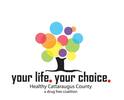

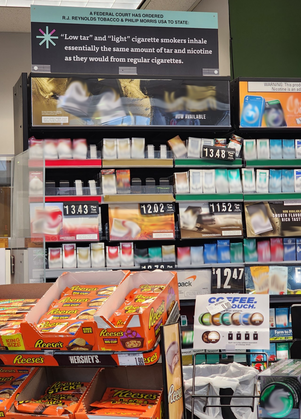

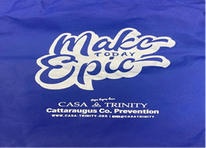
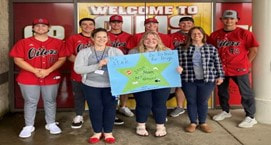
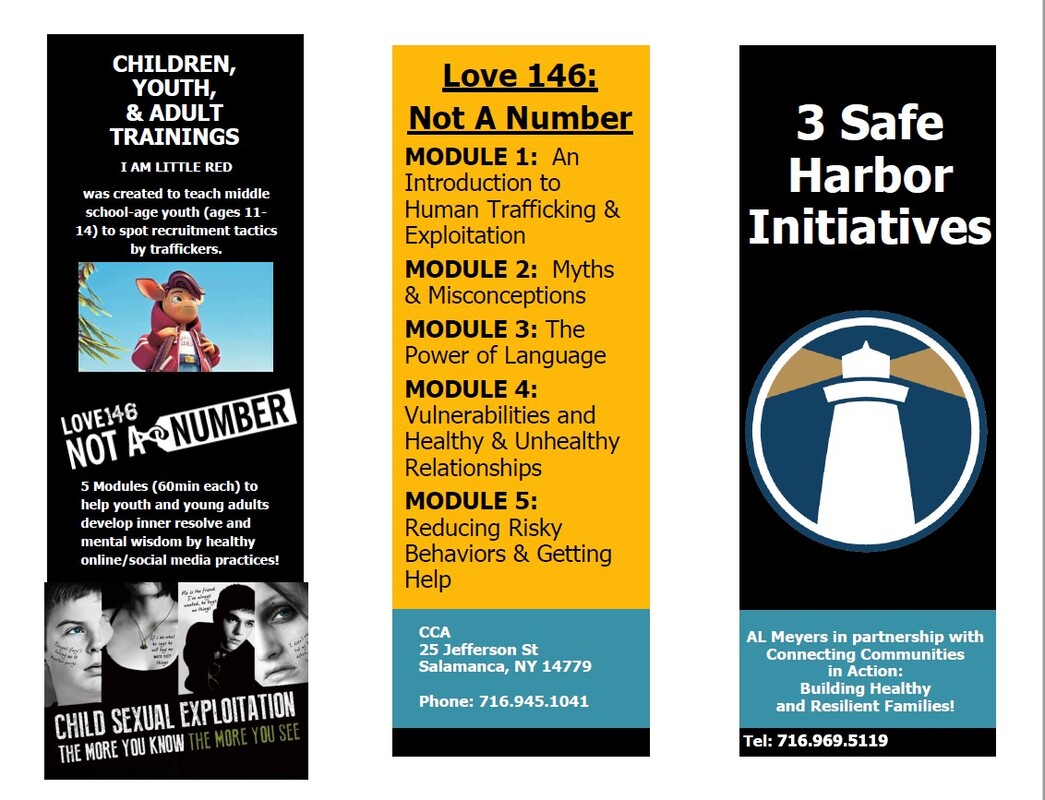
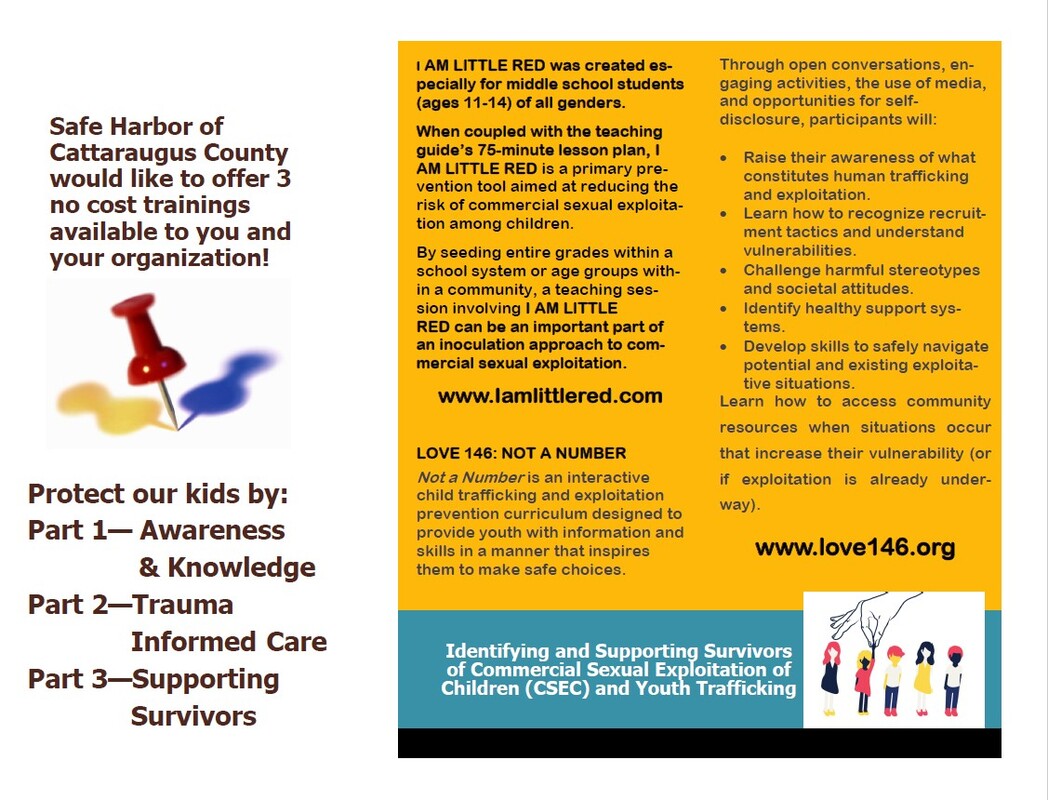
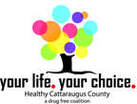
 RSS Feed
RSS Feed